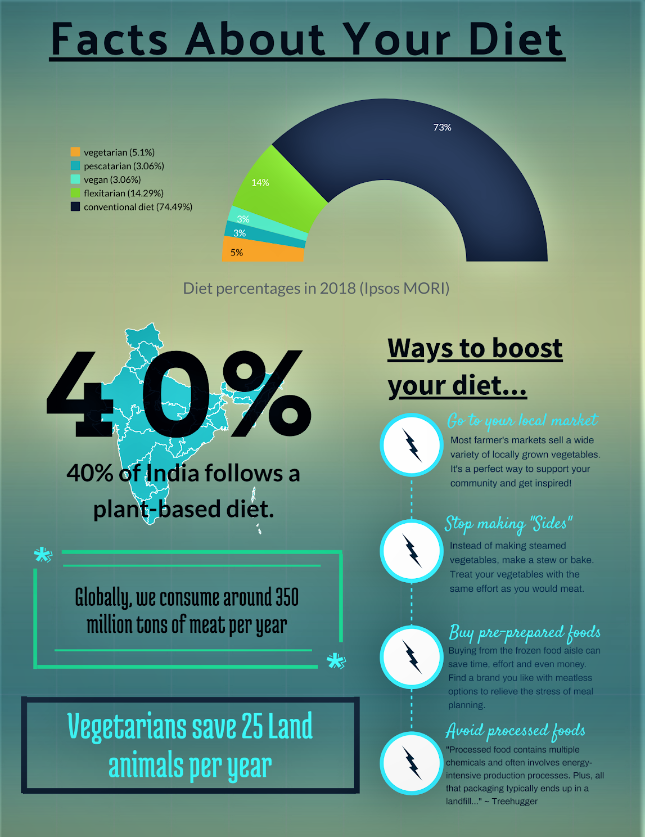Making sustainable choices
Photo credit: Victoria Wittenberg
November 23, 2020
In discussions regarding plant-based meals, many think of bland vegetables: the gross, green, potent side dishes that everyone’s mom forced them to eat as a child. However, you’re not a child anymore. Vegetables aren’t all green or gross, and people on plant-based diets do not exclusively eat vegetables. Right now, too many of us think of meatless meals or plant-based diets as a sacrifice of necessary nutrients or just plain gross, but we as a community need to work a lot harder to incorporate these sustainable, healthy meals into our lives.
While you can choose to replace meals with powders and pills, plant-based foods can be perfectly balanced and are more likely to increase the quality of your health. A study from JAMA Internal Medicine showed that people on a plant-based diet live up to nine years longer than others. With meat replacements rising in popularity, there are a wide variety of ways to get anything you’re missing. Need Iron? Try spinach, oats or mushrooms. Looking for more vitamin B12? Dairy products. Want protein? Add lentils to your shopping list, or you can even try plant-based products like beyond beef.
If you think vegetables taste bad, it’s probably because you overcook them and then eat them plain. Instead, give your vegetables the same energy and attention as you would your meat. Make a stew or soup, try a stir-fry— anything but over-steamed broccoli again.
To be clear, no one should be expected to cut out meat entirely or try to force everyone into their ethical dilemmas. However, it should be expected of all of us to be conscious of our food choices and their impact. Every action is important, but our food and health systems are crucial. Eating meat a few times a week can be a really good thing, but only in moderation. Bacon at breakfast, turkey for lunch and steak for dinner may sound balanced to the typical American, but it’s actually bad for you. According to Insider, eating too much meat often leads to lethargy and rising blood sugar. Sound familiar?
We’ve all heard about the huge carbon footprints left from raising beef, but that doesn’t mean we have to stop eating beef altogether. What it does mean is that we have to raise our beef sustainably and consume less of it. While certain practices like grass-feeding result in higher amounts of nutrients in beef and better tastes, they are awful for the environment. Grass-fed beef has more antioxidants, vitamins and linoleic acid which improve immunity and has anti-inflammatory benefits, but still produces three times the greenhouse gases as grain-feeding due to the longer life span. However, there’s really no win here, as grain-fed beef introduces a plethora of other issues, most notably excessive land use. As Chick-fil-A puts it, “Eat more chicken.”
Most people love eating meat and the world shouldn’t stop raising, buying or enjoying meat anytime soon. That being said, eating meat multiple times per day is unnecessary and could even be considered gluttonous. As a society, we’ve already worked to destigmatize the basics of healthy food and self-discipline, and now it’s time for us all to take the next steps in sustainability.












